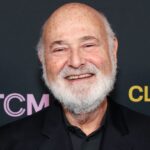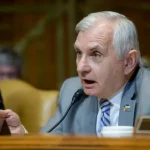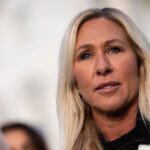

The congressional investigation into the origins of the COVID-19 pandemic has led members of the House to call for reforms to the World Health Organization on the issue of strengthening safety standards and protocols for biological research.
The Select Subcommittee on the Coronavirus Pandemic is holding a hearing on Wednesday on WHO reforms, an event originally planned for late October but postponed. The subcommittee plans to hear from officials from the State Department, Department of Health and Human Services, and USAID.
FDA APPROVES WORLD’S FIRST CRISPR GENE-EDITING DRUG FOR SICKLE-CELL DISEASE
With the United States among the largest financial contributors to the WHO—giving approximately $700 million in 2021, 65% above the annual membership dues—Republicans on the subcommittee are questioning the return on investment based on the organization’s failures with respect to COVID-19, particularly the outsize influence exerted on the organization by the Chinese Communist Party.
“Instead of prioritizing honesty, transparency, and the health of citizens worldwide, the World Health Organization became subject to overwhelming undue influence from the Chinese Communist Party and placed its political interests ahead of its international duties,” wrote Subcommittee Chairman Brad Wenstrup (R-OH) ahead of the postponed Oct. hearing. “Should Americans rely on the WHO when disaster strikes in the future? At this point in time, is it possible for the WHO to be productively reformed?”
Wenstrup said he aims to ensure that the organization cannot be manipulated by the power of one large nation, whether the U.S. or China.
“I want to see some ideas of how we can make the WHO more independent, totally free from political influence,” Wenstrup previously told the Washington Examiner. Wenstrup also said that he would like to soon have a meeting with WHO Director General Tedros Adhanom Ghebreyesus, particularly to discuss the necessity of increasing compliance with biosafety measures for dangerous pathogen research.
Josh Michaud, a global health expert at healthcare policy think tank KFF, says that Congress has little role in engagement with WHO policies, as that responsibility falls on the White House and executive public health agencies.
In May 2020, then-President Donald Trump threatened to withdraw U.S. funding and membership from the WHO, citing the organization’s failure in not properly preparing the world for COVID-19 before widescale spread. At that time, the U.S. had given $400 million to the WHO, 15% of the organization’s operating budget.
Two months later, Trump canceled $62 million in funding to the WHO and set the U.S. withdrawal date for July 2021, which was quickly reversed by the incoming President Joe Biden.
Although a president can unilaterally withdraw the U.S. from the organization or unilaterally, making internal reforms to the function of WHO becomes even harder.
As a recurring member of the WHO’s executive board, Michaud said the U.S. does hold an “oversized influence compared to smaller countries” in terms of setting WHO policy but thinks it is “not enough to completely sway the organization.”
“Any policy changes are approved at the World Health Assembly, which is the annual meeting of all of the different member states of the WHO, and the US is just one country among 194 [members], so the influence only goes so far,” said Michaud.
During the Select Subcommittee’s prior hearings on biosafety standards for pathogen research, several committee members suggested the need for stronger enforcement of existing policy. Others suggested establishing unilateral agreements with countries conducting U.S.-funded research to strengthen safety in laboratories and limit types of experimentation.
Michaud said that although oversight of large multilateral organizations like the WHO is difficult, establishing unilateral agreements between individual countries like the US and China on biosafety or other topics would present its own types of challenges without some of the benefits of a global forum on public health.
CLICK HERE TO READ MORE FROM THE WASHINGTON EXAMINER
The U.S. has several global public health programs that are completely under the control of the U.S. government, such as USAID and the PEPFAR HIV/AIDS prevention program. Developing an equivalent program for biosafety and viral research “would be a tall order and would take time and investment,” said Michaud, especially within the constraints of Congress’s annual appropriations process.
“In the WHO case, they have a role to play [as a] sort of coordinating mechanism … and serves as a meeting point for countries to discuss health policy issues of international importance, and to make recommendations based upon the knowledge of experts from across the world,” said Michaud. “There’s a legitimacy to the global efforts say of who that bilateral program may not have.”






